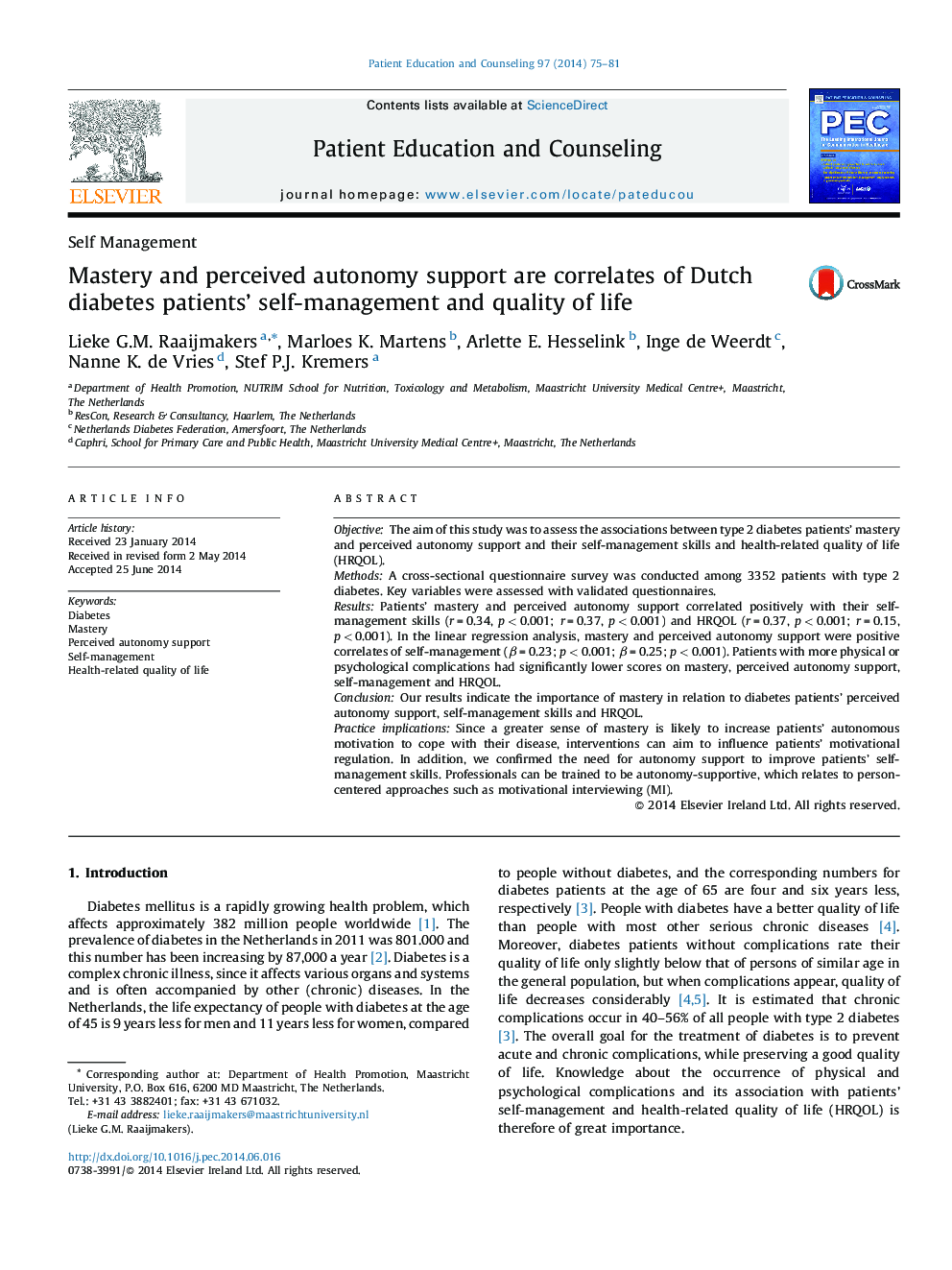| کد مقاله | کد نشریه | سال انتشار | مقاله انگلیسی | نسخه تمام متن |
|---|---|---|---|---|
| 6154009 | 1246161 | 2014 | 7 صفحه PDF | دانلود رایگان |
- Dutch type 2 diabetics had high scores for autonomy support and self-management.
- Patients perceived a relatively low sense of mastery.
- Mastery was associated with perceived autonomy support, self-management and HRQOL.
- HRQOL was lower when more other chronic diseases and complications were present.
- We confirm the need for an autonomy supportive counseling style by professionals.
ObjectiveThe aim of this study was to assess the associations between type 2 diabetes patients' mastery and perceived autonomy support and their self-management skills and health-related quality of life (HRQOL).MethodsA cross-sectional questionnaire survey was conducted among 3352 patients with type 2 diabetes. Key variables were assessed with validated questionnaires.ResultsPatients' mastery and perceived autonomy support correlated positively with their self-management skills (r = 0.34, p < 0.001; r = 0.37, p < 0.001) and HRQOL (r = 0.37, p < 0.001; r = 0.15, p < 0.001). In the linear regression analysis, mastery and perceived autonomy support were positive correlates of self-management (β = 0.23; p < 0.001; β = 0.25; p < 0.001). Patients with more physical or psychological complications had significantly lower scores on mastery, perceived autonomy support, self-management and HRQOL.ConclusionOur results indicate the importance of mastery in relation to diabetes patients' perceived autonomy support, self-management skills and HRQOL.Practice implicationsSince a greater sense of mastery is likely to increase patients' autonomous motivation to cope with their disease, interventions can aim to influence patients' motivational regulation. In addition, we confirmed the need for autonomy support to improve patients' self-management skills. Professionals can be trained to be autonomy-supportive, which relates to person-centered approaches such as motivational interviewing (MI).
Journal: Patient Education and Counseling - Volume 97, Issue 1, October 2014, Pages 75-81
